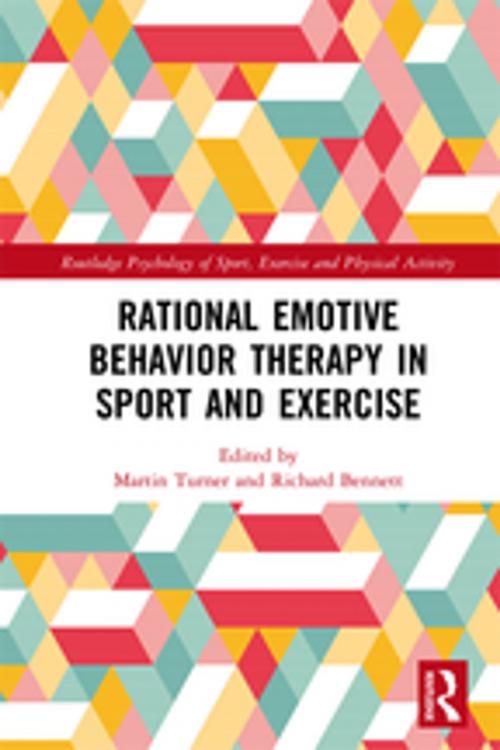Rational Emotive Behavior Therapy in Sport and Exercise
Nonfiction, Reference & Language, Education & Teaching, Teaching, Physical Education, Sports| Author: | ISBN: | 9781134891962 | |
| Publisher: | Taylor and Francis | Publication: | December 6, 2017 |
| Imprint: | Routledge | Language: | English |
| Author: | |
| ISBN: | 9781134891962 |
| Publisher: | Taylor and Francis |
| Publication: | December 6, 2017 |
| Imprint: | Routledge |
| Language: | English |
Rational Emotive Behaviour Therapy (REBT) is one of the most widely used counselling approaches in the world and is one of the original forms of Cognitive Behavior Therapy (CBT). Rational Emotive Behavior Therapy in Sport and Exercise is the first and only book to date to examine the use of REBT in sport and exercise.
It brings together leading international experts and practitioners to reflect on the use of REBT in sport and exercise, and examine the techniques used. Each chapter contains a case study, contextualising theory into practice, giving a rare and detailed insight into the use of REBT across a diverse range of issues. Some of the topics covered include:
• the theory and practice of REBT
• REBT intervention for competition anxiety
• the use of REBT interventions in Paralympic soccer
• the use of REBT in managing injury and loss
• using REBT to address symptoms of exercise dependence
• REBT intervention to improve low frustration tolerance
Offering an invaluable insight into the practical application of REBT, this book is essential reading for undergraduates, postgraduates, trainee and qualified sport and exercise psychologists, and counsellors wishing to move into sport and exercise.
Rational Emotive Behaviour Therapy (REBT) is one of the most widely used counselling approaches in the world and is one of the original forms of Cognitive Behavior Therapy (CBT). Rational Emotive Behavior Therapy in Sport and Exercise is the first and only book to date to examine the use of REBT in sport and exercise.
It brings together leading international experts and practitioners to reflect on the use of REBT in sport and exercise, and examine the techniques used. Each chapter contains a case study, contextualising theory into practice, giving a rare and detailed insight into the use of REBT across a diverse range of issues. Some of the topics covered include:
• the theory and practice of REBT
• REBT intervention for competition anxiety
• the use of REBT interventions in Paralympic soccer
• the use of REBT in managing injury and loss
• using REBT to address symptoms of exercise dependence
• REBT intervention to improve low frustration tolerance
Offering an invaluable insight into the practical application of REBT, this book is essential reading for undergraduates, postgraduates, trainee and qualified sport and exercise psychologists, and counsellors wishing to move into sport and exercise.















